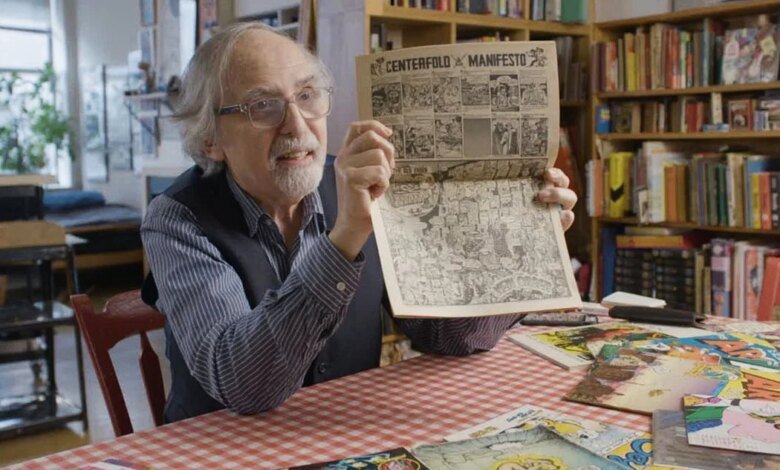

Maus took 13 years – “a long-term disease”, as Spiegelman puts it – and inevitably exacted a huge emotional toll. Mouly describes how he was still wrestling with horribly dark material while she was captivated by the early stages of motherhood. His daughter Nadja, herself a cartoonist, generously suggests that her parents “absorbed the horrors so we didn’t have to”.
Spiegelman is a great advocate for comics as a medium. Though he obviously wanted to expand what the medium is capable of, he also wants us to take seriously the commercial end of the spectrum. He sees the schlocky horror comics he grew up with as “an early Jewish response to Auschwitz”. And he believes that Mad magazine, with its core message that “the whole adult world is lying to you”, had a major impact on what he dubbed the protest generation, which fought for civil rights and opposed the Vietnam War.
Though he’s produced other important works, including In the Shadow of No Towers, about 9/11, Spiegelman long felt burdened by the fame of Maus. He never wanted to be “the Elie Wiesel of comics”, he says, and got tired of endless interviewers asking: “Why mice? Why comics? Why the Holocaust?” He even wrote a book, Meta-Maus, trying to answer these recurring questions once and for all.
Hardcore fans, therefore, may not learn much that they didn’t already know before, but there is still much to enjoy. Now in his mid-70s, the once tormented artist is engaging and surprisingly mellow, though still worried about American politics. He even seems reconciled to the fact that he will always be known primarily for Maus.
By Matthew Reisz
Art Spiegelman: Disaster is My Muse is out in cinemas now and available to stream on Amazon. artspiegelmandoc.com
Source link




